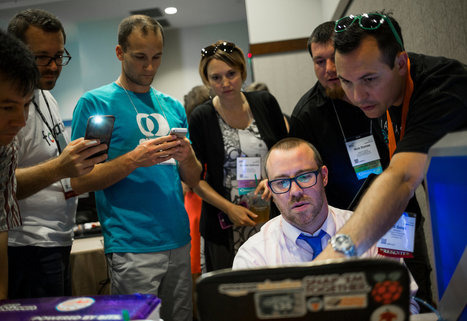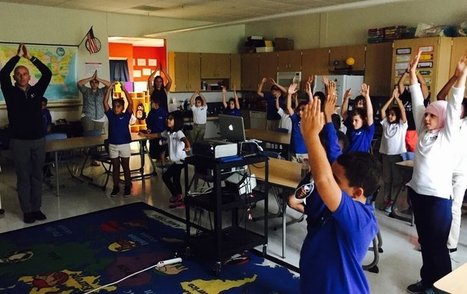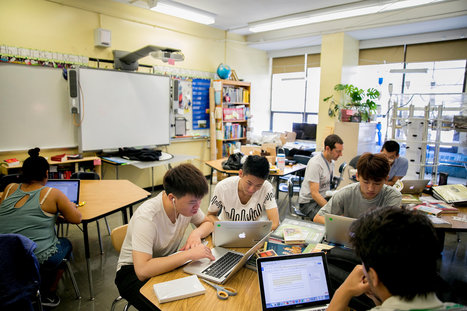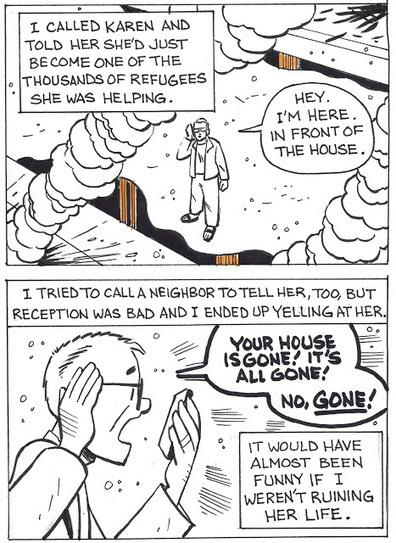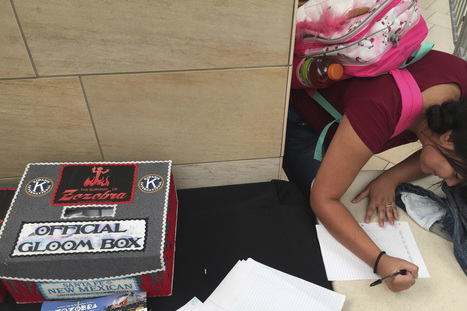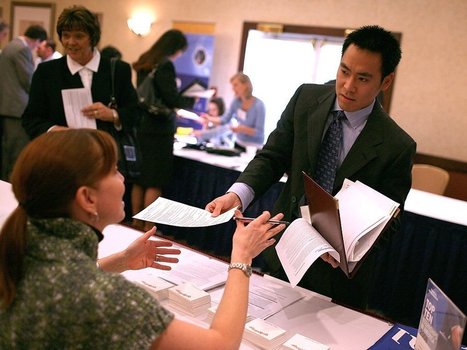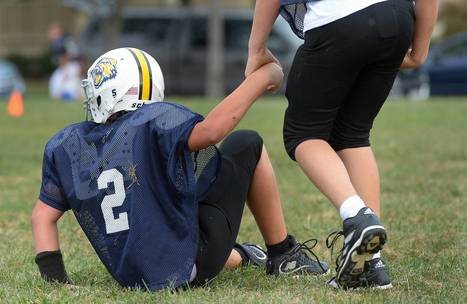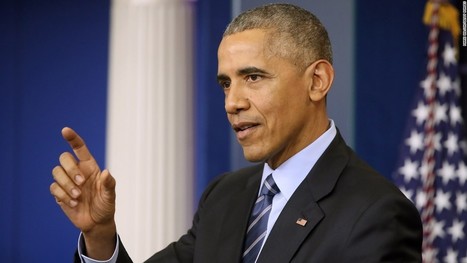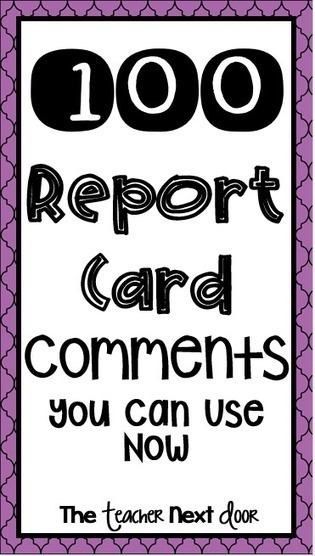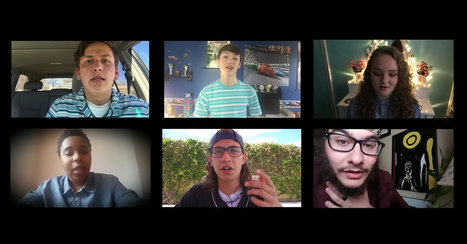 Your new post is loading...
 Your new post is loading...
Explore the articles, videos, and publishers that captured the attention of the Pocket community this year.
PORTLAND, Ore. ― It was late morning in an artsy cafe, the smell of coffee and baked goods sweetening the air, and Ashley Bishop sat at a table, recalling a time when she was taught that most of secular American society was worthy of contempt.
Growing up in private evangelical Christian schools, Bishop saw the world in extremes, good and evil, heaven and hell. She was taught that to dance was to sin, that gay people were child molesters and that mental illness was a function of satanic influence. Teachers at her schools talked about slavery as black immigration, and instructors called environmentalists “hippie witches.”
Bishop’s family moved around a lot when she was a child, but her family always enrolled her in evangelical schools.
So when Bishop left school in 2003 and entered the real world at 17, she felt like she was an alien landing on Planet Earth for the first time. Having been cut off from mainstream society, she felt unequipped to handle the job market and develop secular friendships. Lacking shared cultural and historical references, she spent most of her 20s holed up in her bedroom, suffering from crippling social anxiety.
Now, at 31, she has become everything that she was once taught to hate. She shares an apartment with her girlfriend of two years. She sees a therapist and takes medication for depression, a condition born, in part, of her stifling education.
Years later, some of the schools Bishop attended are largely the same, but some have changed in a significant way: Unlike when Bishop was a student, parents are not the only ones paying tuition for these fundamentalist religious schools – so are taxpayers.
I taught my first class at Columbia University’s M.F.A. program this month, and even though I’ve been teaching college writing since 1993, I initially felt a little intimidated by the school’s regal campus. That, and regretful.
I enjoyed going to college at the University of Michigan, an hour from home, but my secret humiliation is: I was the type of mediocre student I now disdain. As a freshman, I cared about my friends, my boyfriend and my poetry. Or, I cared about what my boyfriend thought of my friends, what my friends thought of him, and what they thought of my poetry about him. Here’s what I wish I’d known and done differently:
A’S ARE COOL AND COME WITH PERKS As a student, I saw myself as anti-establishment, and I hated tests; I barely maintained a B average. I thought only nerds spent weekends in the library studying. Recently I learned that my niece Dara, a sophomore at New York University with a 3.7 G.P.A. (and a boyfriend), was offered a week of travel in Buenos Aires as part of her honors seminar. I was retroactively envious to learn that a 3.5 G.P.A. or higher at many schools qualifies you for free trips, scholarships, grants, awards, private parties and top internships. At 20, I was too busy freaking out when said boyfriend disappeared (after sleeping with one of said friends). Students certainly don’t need to strive obsessively for perfection, but I should have prioritized grades, not guys.
SHOW UP AND SPEAK UP If a class was boring or it snowed, I’d skip. My rationale was that nobody in the 300-person lecture hall would notice and I could get notes later. Attendance barely counted. When I went, I’d sit quietly in back. Yet as a teacher, I see that the students who come weekly, sit in front, and ask and answer questions get higher grades and frankly, preferential treatment. After 15 weeks, I barely know the absentees or anyone Snapchatting the term away on their iPhones. It’s not just that these students flush $300 down the toilet every time they miss my class; participating can actually lead to payoffs. I reward those who try harder with recommendations, references, professional contacts and encouragement.
Find a telling anecdote about your 17 years on this planet. Examine your values, goals, achievements and perhaps even failures to gain insight into the essential you. Then weave it together in a punchy essay of 650 or fewer words that showcases your authentic teenage voice — not your mother’s or father’s — and helps you stand out among hordes of applicants to selective colleges.
That's not necessarily all. Be prepared to produce even more zippy prose for supplemental essays about your intellectual pursuits, personality quirks or compelling interest in a particular college that would be, without doubt, a perfect academic match.
Many high school seniors find essay writing the most agonizing step on the road to college, more stressful even than SAT or ACT testing. Pressure to excel in the verbal endgame of the college application process has intensified in recent years as students perceive that it’s tougher than ever to get into prestigious schools. Some well-off families, hungry for any edge, are willing to pay as much as $16,000 for essay-writing guidance in what one consultant pitches as a four-day “application boot camp.”
This is not a drill: The threats to our most personal data, our businesses, our infrastructure, our democracy, are absolutely real.
Why the world should worry about North Korea's cyber weapons
So, what can we do about it?
There were two crucial takeaways from the episode with "The Interview" that need to be recognized.
First, sophisticated cyberattacks are a new, everyday reality. That attack wasn't the first, and it obviously hasn't been the last. This threat isn't going anywhere.
Second, from now on, high-quality cybersecurity must be a pillar of modern society. In 2014, it enabled millions of people to watch a movie on Christmas Eve. Now, it's an essential ingredient to protecting our economy, our democracy and our way of life. This may all feel a little abstract, so let me be very specific about steps we can take, right now, to strengthen online security for everyone.
Because I believe that our becoming, like the synthesis of meaning itself, is an ongoing and dynamic process, I’ve been reluctant to stultify it and flatten its ongoing expansiveness in static opinions and fixed personal tenets of living. But I do find myself continually discovering, then returning to, certain core values. While they may be refined and enriched in the act of living, their elemental substance remains a center of gravity for what I experience as myself.
I first set down some of these core beliefs, written largely as notes to myself that may or may not be useful to others, when Brain Pickings turned seven (which kindred spirits later adapted into a beautiful poster inspired by the aesthetic of vintage children’s books and a cinematic short film). I expanded upon them to mark year nine. Today, as I round the first decade of Brain Pickings, I feel half-compelled, half-obliged to add a tenth learning, a sort of crowning credo drawn from a constellation of life-earned beliefs I distilled in a commencement address I delivered in the spring of 2016.
Here are all ten, in the order that they were written.
Xi Jinping is tightening his grip on power. How did one man come to embody China's destiny?
Grit has been a pretty popular buzzword in education these past few years. The concept isn’t exactly new. Perseverance, willingness to learn, passion, positively dealing with adversity—these are all characteristics that we typically associate with good students, and people for that matter. While we may have anecdotally known this for a while, scientific research is now confirming that grit is gold.
Angela Duckworth is the Christopher H. Browne Distinguished Professor of Psychology at the University of Pennsylvania. She is also the founder and CEO of Character Lab, a nonprofit whose mission is to advance the science and practice of character development. Duckworth studies grit and self-control, two attributes that are distinct from IQ and yet powerfully predict success and well-being.
She recently visited Phillips Academy to talk about her research and present to the community. Before hitting the stage Duckworth sat down with History & Social Science Instructor and Tang Institute Fellow Noah Rachlin to dive deeper into her thesis.
We are delighted to tell you about four new webinars for teachers this fall, all of which will feature Times journalists talking about their work and its implications for teaching and learning.
Each hour-long interactive session will be hosted by a Learning Network editor and will also include a classroom teacher who will show you creative ways to weave related Times articles, photos, videos and infographics into your curriculum.
Though all of our sessions will be available to watch on-demand, we hope you’ll join us live. If you do, you’ll have a chance to ask questions of Times journalists like the Op-Ed columnist Nicholas Kristof (Oct. 10), video journalist Kassie Bracken (Sept. 27), Science Times reporters James Gorman and Nicholas St. Fleur (Oct. 25), and Evan Sandhaus, Head of Digital Archive Platforms and Metadata, who is an expert in the use of our rich primary-source archive, TimesMachine. (Nov. 8).
Sign up using the links below. We look forward to talking to you!
Joel B. Pollack in Breitbart:
“As frustrating as that may be to those who want to see DACA totally wiped off the books, and every one of its beneficiaries given a one-way bus ticket across the border, letting Congress decide what to do about the ‘Dreamers’ is exactly what ought to happen.”
Mr. Pollack believes that President Trump has made the right decision by putting the responsibility, and the pressure, on the shoulders of Congress. There are reasons, he writes, for both “amnesty opposers” and supporters of the Deferred Action for Childhood Arrivals program, known as DACA, to rejoice at this development. Those who oppose the measure “can take heart from the fact that this Congress seems incapable of passing anything at all.” And those who want to keep DACA “know they only need a few G.O.P. votes” to extend the program. Read more »
MAPLETON, N.D. — One of the tech-savviest teachers in the United States teaches third grade here at Mapleton Elementary, a public school with about 100 students in the sparsely populated plains west of Fargo.
Her name is Kayla Delzer. Her third graders adore her. She teaches them to post daily on the class Twitter and Instagram accounts she set up. She remodeled her classroom based on Starbucks. And she uses apps like Seesaw, a student portfolio platform where teachers and parents may view and comment on a child’s schoolwork.
Ms. Delzer also has a second calling. She is a schoolteacher with her own brand, Top Dog Teaching. Education start-ups like Seesaw give her their premium classroom technology as well as swag like T-shirts or freebies for the teachers who attend her workshops. She agrees to use their products in her classroom and give the companies feedback. And she recommends their wares to thousands of teachers who follow her on social media.
“I will embed it in my brand every day,” Ms. Delzer said of Seesaw. “I get to make it better.”
Ms. Delzer is a member of a growing tribe of teacher influencers, many of whom promote classroom technology. They attract notice through their blogs, social media accounts and conference talks. And they are cultivated not only by start-ups like Seesaw, but by giants like Amazon, Apple, Google and Microsoft, to influence which tools are used to teach American schoolchildren.
“We fall into this trap that if kids are at their desks with their heads down and are silent and writing, we think they are learning,” Mr. Gatens added. “But what we have found is that the active time used to energize your brain makes all those still moments better,” or more productive.
A 2013 report from the Institute of Medicine concluded that children who are more active “show greater attention, have faster cognitive processing speed and perform better on standardized academic tests than children who are less active.” And a study released in January by Lund University in Sweden shows that students, especially boys, who had daily physical education, did better in school.
“Daily physical activity is an opportunity for the average school to become a high-performing school,” said Jesper Fritz, a doctoral student at Lund University and physician at the Skane University Hospital in Malmo who was the study’s lead author.
Few middle schoolers are as clued in to their mathematical strengths and weakness as Moheeb Kaied. Now a seventh grader at Brooklyn’s Middle School 442, he can easily rattle off his computational profile.
“Let’s see,” he said one morning this spring. “I can find the area and perimeter of a polygon. I can solve mathematical and real-world problems using a coordinate plane. I still need to get better at dividing multiple-digit numbers, which means I should probably practice that more.”
Moheeb is part of a new program that is challenging the way teachers and students think about academic accomplishments, and his school is one of hundreds that have done away with traditional letter grades inside their classrooms. At M.S. 442, students are encouraged to focus instead on mastering a set of grade-level skills, like writing a scientific hypothesis or identifying themes in a story, moving to the next set of skills when they have demonstrated that they are ready. In these schools, there is no such thing as a C or a D for a lazily written term paper. There is no failing. The only goal is to learn the material, sooner or later.
|
Merry Christmas, happy Hanukkah, joyous Kwanzaa and happy New Year.
Here are some of our favorite recent Times articles, essays, photo slide shows, videos and graphics to help you celebrate the season, whether in the classroom or at home. We’ll continue to update this list throughout December to help you look back at the year that was — and forward to the year that will be.
The Learning Network is taking a break from Dec. 23 through Jan. 1, but we wish you peace and joy, family and friends, gingerbread houses and festive playlists, ugly sweaters and beautiful moments to melt even the humbuggiest heart.
“As the next round of international climate talks kicks off Monday in Bonn, Germany, many of the headlines will focus on what role the Trump administration will play in these negotiations — especially since President Trump has vowed to leave the Paris climate agreement by 2020.
But there’s a much deeper problem looming over these talks. None of the world’s major industrialized nations are yet doing anything close to what’s needed to avoid drastic global warming in the decades ahead. Not the United States. Not Europe. Not Canada. Not Japan.
As we show in an article published today, there’s a large gap between what countries are currently doing to cut their greenhouse gas emissions and what they promised to do in Paris in 2015.
That’s not all: There’s an even larger gap between what they promised in Paris and what scientists say is needed to keep the world below 2 degrees Celsius of global warming, the threshold that world leaders have agreed is unacceptably risky. The charts by my colleague Nadja Popovich make this gap stark.”
Student anxiety and hostility on public high school campuses has worsened since Donald Trump became president and is affecting student learning, according to a new UCLA report.
More than half of public high school teachers in a nationally representative school sample reported seeing more students than ever with “high levels of stress and anxiety” between last January, when Trump took office, and May. That’s according to the study, “Teaching and Learning in the Age of Trump: Increasing Stress and Hostility in America’s High Schools,” by John Rogers, director of the Institute for Democracy, Education and Access at the University of California at Los Angeles.
“I’ve never been in a school year where I’ve had so many kids, kind of on edge,” the report quoted a Utah social studies teacher as saying. The names of the teachers in the report were pseudonyms.
And nearly 80 percent said some students had expressed concern for their well-being because of the charged public conversation about issues such as immigration, health care, the environment, travel bans and LGBTQ rights, it said. Furthermore, 40 percent said concerns over key issues — such as Trump’s ban on travelers from eight countries, most with Muslim majorities; restrictions on LGBTQ rights; and health care — are making it harder for students to focus on their studies and making them less likely to come to school.
This is A Fire Story. Today's Part 2 is below, but I also reposted Friday's Part 1 so the complete story would be together in one place.
Which is not to say I won't do more, depending on what else happens.
It's much less polished than my usual work, but that's part of the point. Writing, penciling and inking an 18-page comic like this would normally take me a few weeks. I did this over parts of four days using a bad brush pen and art supplies from Target--Sharpie pens, highlighters and crummy paper--because Target was the only open store I could find within 20 miles.
It's a first-person report from the front line. They're not always pretty.
Page 9 has some profanity. Actually, it has nothing but profanity. Sorry. I wrestled with that, but that's exactly the way it happened and I am an honest reporter.
My family, pets and I are all fine--a lot better off than many others. There's not a person in the county who hasn't been touched by this disaster. Karen and I know at least a hundred people burned out of their homes, including a lot of cops, firefighters, and government staff who've been working hard for others all week.
A Fire Story has drawn a lot of readers, Facebook comments and shares, and other attention. I appreciate that deeply. Thanks.
We'll be fine. I'll keep you posted as we rebuild.
Teenage life can be stressful. Anxious. We know it. We get it. But in the last decade, the number of American teens reporting "overwhelming anxiety" has surged. For some, it's just a lousy feeling. For others, it's debilitating. Paralyzing. Severe anxiety. So why? Some look at the world now and say, "Why not? Look around!" Others point to social media, or parenting that may be too quick to protect. This hour, On Point: More American teens, more anxious than ever, and what to do about it.
Is American democracy in decline? Should we be worried?
On October 6, some of America’s top political scientists gathered at Yale University to answer these questions. And nearly everyone agreed: American democracy is eroding on multiple fronts — socially, culturally, and economically.
The scholars pointed to breakdowns in social cohesion (meaning citizens are more fragmented than ever), the rise of tribalism, the erosion of democratic norms such as a commitment to rule of law, and a loss of faith in the electoral and economic systems as clear signs of democratic erosion.
No one believed the end is nigh, or that it’s too late to solve America’s many problems. Scholars said that America’s institutions are where democracy has proven most resilient. So far at least, our system of checks and balances is working — the courts are checking the executive branch, the press remains free and vibrant, and Congress is (mostly) fulfilling its role as an equal branch.
But there was a sense that the alarm bells are ringing.
Yascha Mounk, a lecturer in government at Harvard University, summed it up well: “If current trends continue for another 20 or 30 years, democracy will be toast.”
Teachers know all too well the collective groan associated with announcing a group project. Endless gripes and grievances can follow — “But he’s not doing his work!” “She’s not listening to my ideas!” and ultimately, “Can’t I just work alone?”
The answer to that last question should usually be a resolute “no,” according to a forthcoming article that reveals the increasing importance of social skills in the contemporary labor market. Professions requiring high levels of social interaction — such as managers, teachers, nurses, therapists, consultants, and lawyers — have grown by nearly 12 percentage points as a share of all jobs in the United States economy in the last 30 years. Math-intensive but less social jobs shrunk by 3.3 percentage points over the same period. The pay for more social-intensive jobs is increasing at a faster rate as well.
For educators, it’s a reminder that working through those tricky group dynamics may have significant value for today’s young people.
For all the pressure on college students to pick a lucrative major, not everyone goes where the jobs are.
According to career site Zippia, which used US Census data to estimate the unemployment rate for people 22 to 25 years old in various fields, there are several areas of study that make job-finding harder.
Many of the majors deal with the arts, society, and communication. But some are still related to science, engineering, technology, and math (STEM). The findings suggest that even if students pursue STEM fields, which data show are lacking in new talent, recent grads aren't guaranteed a job.
Here are the majors that produce the highest unemployment rates:
A new medical study has found that children who play football before age 12 suffer mood and behavior problems later in life at rates significantly higher than those who take up the sport later.
The study, which was published Tuesday in the medical journal Translational Psychiatry, showed those who participated in football before age 12 were twice as likely to have problems with behavior regulation, apathy, and executive functioning — including initiating activities, problem solving, planning and organizing — when they get older. The younger football players were three times more likely as those who took up the sport after age 12 to experience symptoms of depression.
“Between the ages of 10 and 12, there is this period of incredible development of the brain,” said Dr. Robert Stern, the director of clinical research at Boston University’s Chronic Traumatic Encephalopathy (CTE) Center who co-authored the study. “Perhaps that is a window of vulnerability. . . . It makes sense that children whose brains are rapidly developing should not be hitting their heads over and over again.”
Washington (CNN)Former President Barack Obama on Tuesday bashed his successor's decision to rescind an immigration order shielding some children of undocumented immigrants from deportation, calling the move "cruel" and "self-defeating."
"To target these young people is wrong -- because they have done nothing wrong," Obama wrote in a post on Facebook hours after the decision was announced by President Donald Trump and Attorney General Jeff Sessions. "It is self-defeating -- because they want to start new businesses, staff our labs, serve in our military, and otherwise contribute to the country we love. And it is cruel."
When teachers talk about the joys of teaching, I'm pretty sure they aren't talking about report card writing. It may just rank right up there with indoor recess, yard duty, and staff meetings. But report cards don't have to be such a pain. Here are a few report card general principles, followed by my handy dandy list of editable go-t
Beginning in early 2017, I began asking teenagers around the country to make videos in which they responded to the following question: “What are your values as a person? What are American values? Do you think the country is living up to those values today? Why or why not?” Their answers have a new urgency in the wake of the violence in Charlottesville, Va., which has brought lingering questions about America’s past, present and future to the forefront of the national conversation.
The footage in the video above was all submitted before the rally in Charlottesville. I was inspired to collect it by my conversations with young people in the months following the 2016 election. It started with an election-week experiment — I wanted to hear what first-time voters in Pennsylvania had to say about starting their voting lives in what already felt, to me, like a historically bizarre time. In the weeks that followed, I talked to young protesters, youth reporters at a local newspaper and teenage environmental activists.
Adults often dismiss teenagers, assuming that they’re callow, apathetic or uninformed. But the kids I was meeting cared passionately about education, foreign policy, racial justice and more. Even when they weren’t sure how they felt about a certain candidate or issue, they were clearly thinking deeply.
|
 Your new post is loading...
Your new post is loading...
 Your new post is loading...
Your new post is loading...







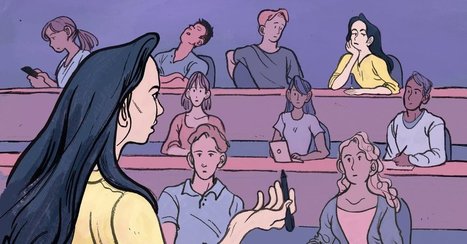
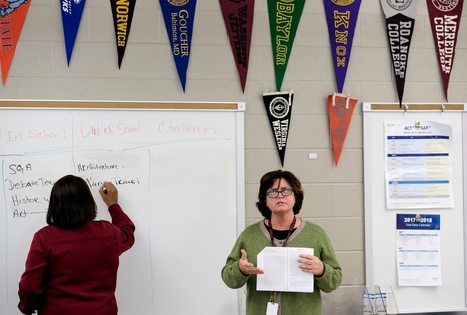


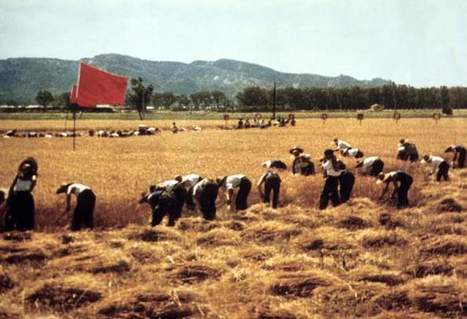
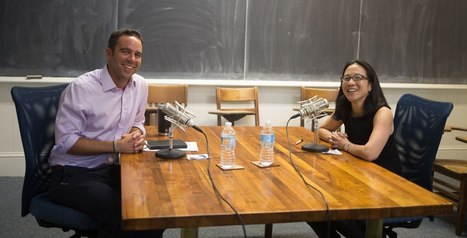
![Announcing [New York Times] Fall 2017 Webinar Calendar: Teaching With The Times Across the Curriculum | Learning, Teaching & Leading Today | Scoop.it](https://img.scoop.it/otB_RNEJDyPYPIAsiHMn7zl72eJkfbmt4t8yenImKBVvK0kTmF0xjctABnaLJIm9)

